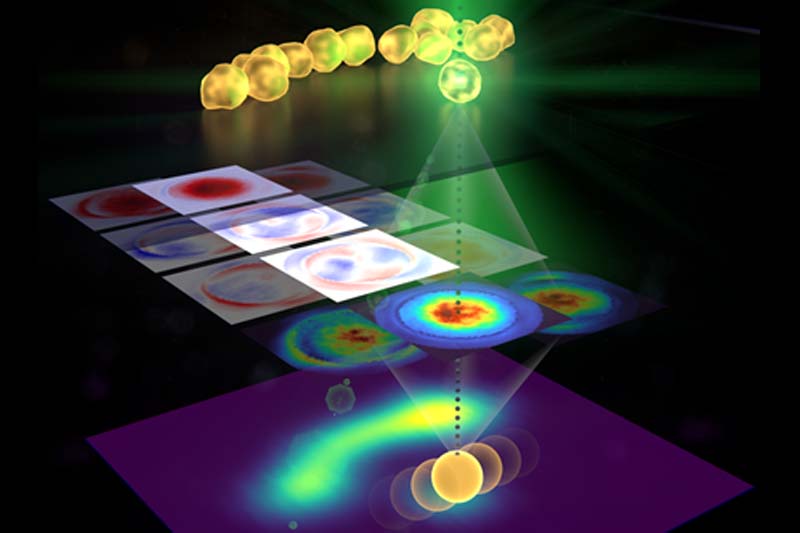In our light- and vision-driven world, imaging systems are of utmost importance. In this context, microscopes in particular are the tool of choice, e.g., to gain insights into microscopic and sub-microscopic worlds. But conventional optical microscopy techniques are usually limited in resolution – a direct consequence of fundamental laws of physics. Super-resolution methods, on the other hand, require the introduction of actively emitting molecules, called fluorophores, into the sample, i.e. to embed countless point-like light sources. This rather invasive approach is not always possible or desired. Therefore, there is a strong demand for non-invasive nanoscopic imaging modalities.
In their proof-of-concept study, Jörg Eismann and Peter Banzer now show that by measuring the light field after its interaction with a sample illuminated by a focused laser beam, very fine details can be retrieved if intensity and polarization of the scattered light are analysed in their angular and spatial distributions. To prove their new method, they measure the size and positon of randomly distributed sub-wavelength nanoparticles. Said parameters can be retrieved very precisely, even if the particles are touching.
The article was recently published in Optica. More details can be found in the article and press releases (see links below).
J. S. Eismann and P. Banzer, Sub-diffraction-limit Fourier-plane laser scanning microscopy, Optica 9, 455-460 (2022); https://doi.org/10.1364/OPTICA.450712;
Highlighted on Laser Focus World, OPTICA, EurekAlert!, Phys.org, ScienceDaily, etc.
Contact: Peter Banzer; Optics of Nano and Quantum Materials (website)
